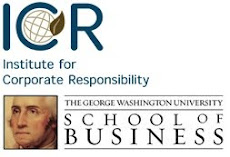For my sustainable supply chains class, we are reading Cradle to Cradle: Remaking the Way we Make Things over the course of the next 7 weeks. The book is fantastic and is itself completely recyclable. It is also waterproof, so if you are the type of person who likes to read in the bath or on the beach, you are in luck! I have only read up to chapter 4, but thus far it is fantastic.
The book is written by a chemist and a designer and begins by informing you that the fabric of the armchair you are sitting in likely contains mutagenic materials and heavy metals and that the computer that your child is using contains thousands of materials, including toxic gases, toxic metals, acids, etc. Pretty upbeat right?
While it can be a bit depressing and discouraging [did you know that your recyclables are not actually recreated into bottles, but turned into a lower grade plastic and then made into park benches and speed bumps?] I find the book a very unique way of looking at the world, and at our current and future environmental challenges.
The goal of the authors is to change your way of thinking. Instead of trying to help companies be “less bad” they ask: why can’t we try to be “more good”? Instead of being eco-efficient, which in their opinion is the same as accepting that environmental destruction is inevitable, we should be eco-effective and find positive solutions to problems that are beneficial to the environment and the community.
Their goal is to get the reader to start thinking about the entire life cycle of a product instead of only thinking about the way the final product appears on the surface. A product that is made of recyclable material, for example, could in fact be more destructive to the environment than its non-recycled counterpart. The authors propose that companies and consumers begin thinking about the design of products before their creation so that we are developing products that have a positive impact on the environment throughout their life. Instead of accepting that a company is going to pollute and trying to getting them to emit less and be less harmful, maybe companies should build factories that have a net benefit to the environment by cleaning water and cleaning the air for the surrounding community.
I highly recommend picking up a copy of this book!
Contributed by: Eliza Roberts, Global MBA 2011





